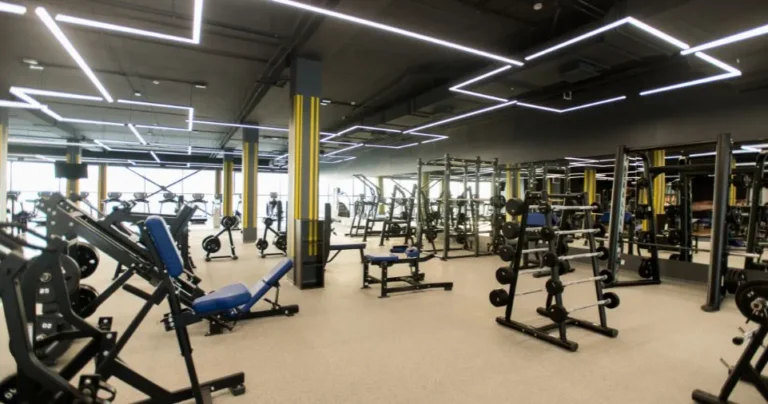learn to sit back and observe. not everything need – tymoff
Patience is a virtue in a world that moves quickly. Discover how to observe from a distance. Not all situations need an instant response.
Examine the advantages of taking a break, thinking, and improving your judgements for a more tranquil temperament.
Introduction
With everything moving at breakneck pace in our society, it’s natural to feel overburdened and under pressure to respond quickly to each issue that comes up.
The ability to practice patience and observation, however, has great power. We may make wiser judgements, develop more tranquil states of mind, and get insightful knowledge when we learn to step back and watch.
The Importance of Taking Time Off
Taking a break can seem like a luxury in our constantly connected environment. For our physical, mental, and emotional health, it is necessary, however.
Recharging, gaining perspective, and returning to our duties with fresh vigour and clarity are all made possible by taking a step back from our everyday routines.
Establishing time for ourselves is essential for preserving equilibrium and avoiding burnout, whether it takes the form of a little break throughout the day or a longer trip away.
The Power of Observation
Even though it’s a talent we often undervalue, observation is essential to navigating life’s challenges. It is possible to learn a great deal about ourselves and the world around us by paying attention to our environment, relationships, and feelings.
By standing back and observing, we may get knowledge, evaluate circumstances more precisely, and respond intelligently rather than responding hastily to every input.
Not Everything Needs an Immediate Reaction
The urge to respond quickly to every circumstance is common in our fast-paced environment. Not every situation, however, calls for a quick solution.
We may avoid making snap judgements we might come to regret by fighting the need to respond hastily. We may react more thoughtfully and skillfully when we take the time to pause, think, and weigh our alternatives.
The Benefits of Reflection
For the purpose of developing oneself, reflection is a very useful technique. We may learn important things about who we are and how we behave by pausing to think back on our past experiences, ideas, and deeds.
We may see trends, comprehend our reasons, and grow from our errors by reflecting on our experiences. Enhancing self-awareness and confidence, it also gives us a chance to recognize and appreciate our accomplishments.
Making Better Decisions
There is a greater chance of error or missing crucial information when we make snap judgements without stopping to observe and think things through.
However, we may make more informed judgements that are consistent with our objectives and beliefs if we exercise patience and take the time to collect data, evaluate our alternatives, and think through any possible repercussions.
The secret to making well-informed decisions that result in favourable results is learning to trust our gut feelings while simultaneously depending on close observation and introspection.
Cultivating a Peaceful State of Mind
Developing a more tranquil state of mind is the main motivation behind learning to take a step back and watch.
The ability to discover moments of peace and tranquilly is crucial for our general well-being in a world full of pressures, diversions, and demands on our time and attention.
We may develop more inner serenity, calm, and contentment by accepting patience, engaging in mindfulness exercises, and setting aside time to watch and think.
Incorporating Patience into Daily Life
It takes deliberate practice and effort to incorporate patience into our everyday lives. To accept uncertainty and discomfort, it entails putting aside the need to respond hastily, spending time observing and thinking things through.
Setting limits, putting self-care first, and scheduling time for joyful and fulfilling pursuits are also essential components of it. Resilience, clarity, and happiness in many aspects of our life may be enhanced by prioritizing patience.
Embracing Imperfection
Ignoring flaws and relinquishing control are equally necessary skills for learning to watch from a distance.
It’s acknowledging and accepting the fact that we can’t always control or foresee how things will turn out in every circumstance.
Greater freedom, creativity, and pleasure may be experienced in our life when we let go of our attachment to certain results and embrace the journey.
The Role of Gratitude
A more potent technique to develop patience and a calmer mindset is to practice thankfulness. We may alter our perspective and develop a stronger feeling of gratitude and satisfaction by concentrating on the benefits and plenty in our life rather than focusing on what we lack or seek.
Our ability to remain grounded, resilient, and upbeat in the midst of adversity may be enhanced by including thankfulness activities like writing, meditation, or just pausing to acknowledge our blessings.
Conclusion
The benefits of being able to watch from a distance are immeasurable, yet mastering this talent requires time and practice.
We may develop more insightful perspectives, wiser choices, and a more contented and tranquil existence by being adept at the art of waiting. Thus, stop, inhale, and look about you for a bit. What you learn could surprise you.






